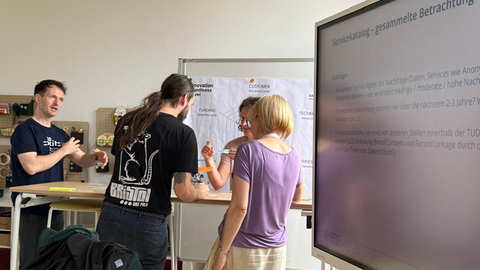 © tud
© tud
Self-image of the Chair
Following a comprehensive understanding of innovation, we deal with questions of searching for, finding, storing and protecting as well as developing, using and passing on new knowledge.
In the context of technology management , the focus is on the best competitive design of research and development in companies with the involvement of relevant internal and external stakeholders in a targeted manner. A special focus is placed on new ways of sustainable technology transfer from universities and non-university research institutions and on new methods of digital innovation management.
In addition to technology-based product and process innovations in industrial and technical companies, the Chair also deals with service innovations as well as open, social and sustainable innovations, which are becoming increasingly important for the acceptance and diffusion of innovations in business and society. This also includes questions of constant and sometimes disruptive change in companies, industries and regions and how to shape it.
Innovations are regularly associated with increased risks, which can be better managed through entrepreneurial action within the company (intrapreneurship) as well as in the form of start-ups, spin-offs, joint ventures and corporate venturing (entrepreneurship). Start-ups and spin-offs from universities and research institutions are important drivers of innovation. With their specific challenges, for example in the areas of venture financing, marketing and internationalization, they form another focus of scientific work. The research is based on explanatory and decision theory and derives empirically testable hypotheses from the theoretical model formulation in order to test them against practical findings. The results obtained in this way are incorporated into teaching and transfer.






